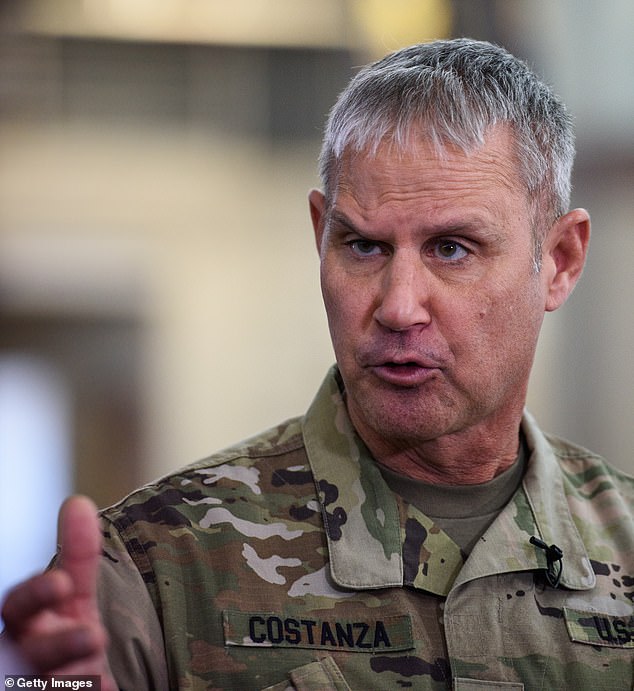Russia’s military has grown since before the invasion of Ukraine despite suffering heavy troop losses, and is “modernizing” as it learns how to “defeat” Western warfare techniques and equipment, a top US general has warned.
Lt. Gen. Charles Costanza, commander in chief of the U.S. Army’s V Corps, stationed in Poland, said the biggest threat to NATO is “clearly Russia,” and that the threat is more imminent than many believe.
“I think there’s a bit of a misperception that we have time and that Russia is suffering a lot of losses and it’s going to take a while for them to rebuild and reconstitute. I don’t have that view,” he told Voice of America.
He said that while Vladimir Putin’s conscript army “may not be as well trained” as the original ranks he sent to Ukraine in 2022, pressure for more troops has meant they are a much larger fighting force than before he war would break out.
Senior military commanders warned that Moscow’s forces have also “modernized, learning the lessons from the fighting in Ukraine, which is going to be a problem for us in the West because Ukraine is using Western equipment, it is using Western techniques.”
“Russia is learning how to defeat that and I think we need to be prepared in the short term,” he said.
Lt. Gen. Charles Costanza, commander in chief of the U.S. Army’s V Corps, stationed in Poland, said the biggest threat to NATO is “clearly Russia.”
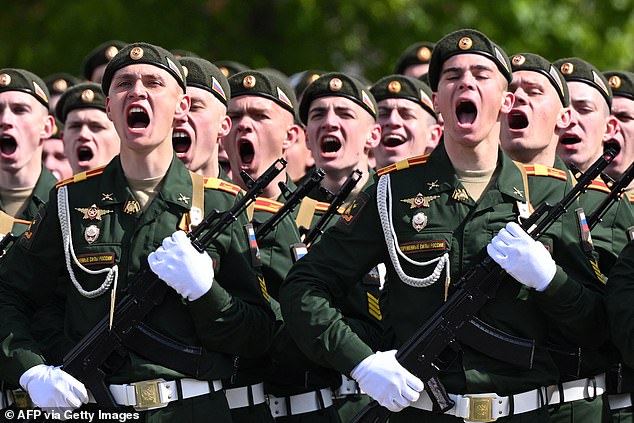
Russian servicemen attend the Victory Day military parade in Moscow’s Red Square on May 9, 2024.
Discussing a readiness timeline, Lieutenant General Costanza said: ‘NATO considers a horizon of three to seven years to reconstitute, other people say the same. “I think it’s much more short-term than that.”
He added that while the security alliance may not yet be fully prepared for confrontation, he had never before seen “a real sense of urgency from NATO to prepare” like the organization was now showing.
His comments come after the UK Ministry of Defense estimated this month that the number of Russian casualties is likely to exceed 465,000 since Vladimir Putin launched his full-scale invasion in February 2022.
Despite heavy losses, Kremlin forces mounted a renewed ground offensive over the weekend against cities and towns in Ukraine’s northeastern Kharkiv region, claiming Sunday
The US military commander’s warnings come as the Kremlin continues to issue its own, with Russian Foreign Minister Sergei Lavrov declaring today that Russia is prepared to participate if the West wants to fight for Ukraine on the battlefield.
“It is their right: if they want it to be on the battlefield, it will be on the battlefield,” Lavrov said in comments published by the Russian agency RIA Novosti.
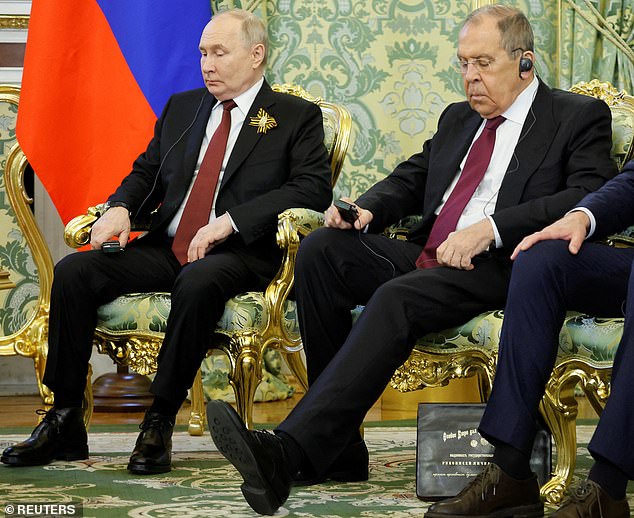
Russian Foreign Minister Sergei Lavrov stated today that Russia is ready to participate if the West wants to fight for Ukraine on the battlefield. Putin and Lavrov appear in the photo this week
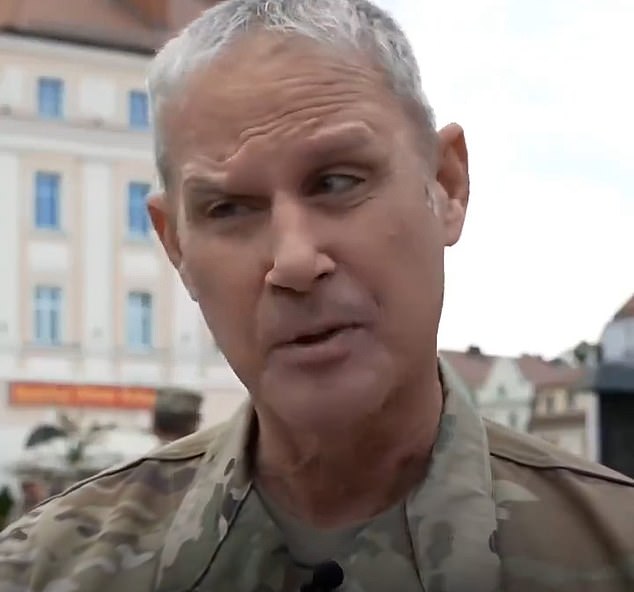
Lieutenant General Costanza said: ‘NATO thinks about a horizon of three to seven years to reconstitute itself, other people say the same. I think it’s much more short-term than that.
french president Emmanuel Macron has been repeated repeatedly refused to rule out the possibility that Western troops will one day be sent to Ukraine.
Vladimir Putin warned earlier this year that the deployment of NATO troops to Ukraine could lead to World War IIIand the Kremlin claimed that any Western equipment used by Kyiv to attack will be seen as a legitimate target, even if it is based in a third country.
Today in the United Kingdom, Prime Minister Rishi Sunak also acknowledged the looming threat of war, declaring: “Putin’s recklessness has brought us closer to a dangerous nuclear escalation than at any time since the Cuban missile crisis.”
But Sunak also looked beyond the war in Ukraine and warned that Britain faces an increasingly dangerous future due to threats from an “axis of authoritarian states”, including Russia, China, Iran and North Korea.
“I am convinced that the coming years will be some of the most dangerous, but also the most transformative, that our country has ever known,” Sunak said.
Today’s speech comes weeks after the British Prime Minister announced a renewed focus on security and pledged to increase defense spending to 2.5 percent of GDP by 2030.
He also said the world has been “the most volatile” for years and that the British defense industry must be put on a “war footing” in statements given during a joint appearance with NATO chief Jens Stoltenberg at a military base in the Polish capital last month.
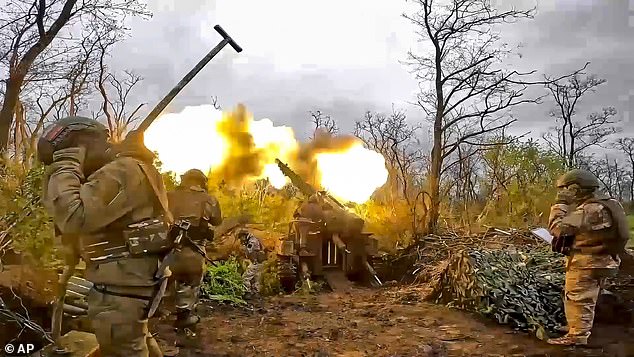
Russian howitzer fires at Ukrainian positions at undisclosed location
Sunak’s push to put the British defense industry on a war footing came after General Sir Richard Barrons has warned the nation is woefully ill-prepared for a conflict with Russia and urged the government to invest heavily in rebuilding the armed forces to meet the challenge.
“Russia is clearly angry and rearming, so its capability will be restored and when the shooting stops in Ukraine, Russia will blame us for the outcome,” he told MailOnline earlier this year.
‘We are already in confrontation with Russia. At this point we have decided to do very little about it.
«During the Cold War, the army, at all times, was ready to fight with four hours’ notice. When the Cold War ended and there was no sense of existential risk for the UK, all of that was dismantled.
“We would now need five to ten years’ notice of a Russian surprise attack to be able to deal with it. It’s deeply disappointing.”

